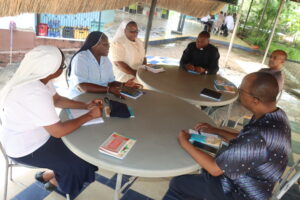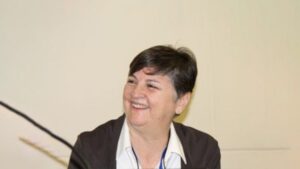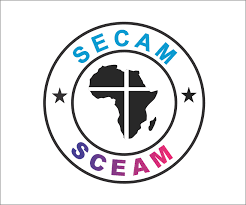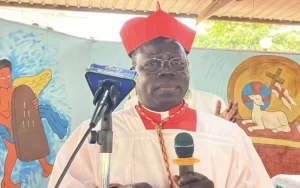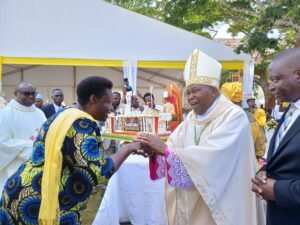AMECEA: Role of Clerics in Synodal Process, Indispensable: AMECEA Parish Priests Expected in Rome-Synod Meeting
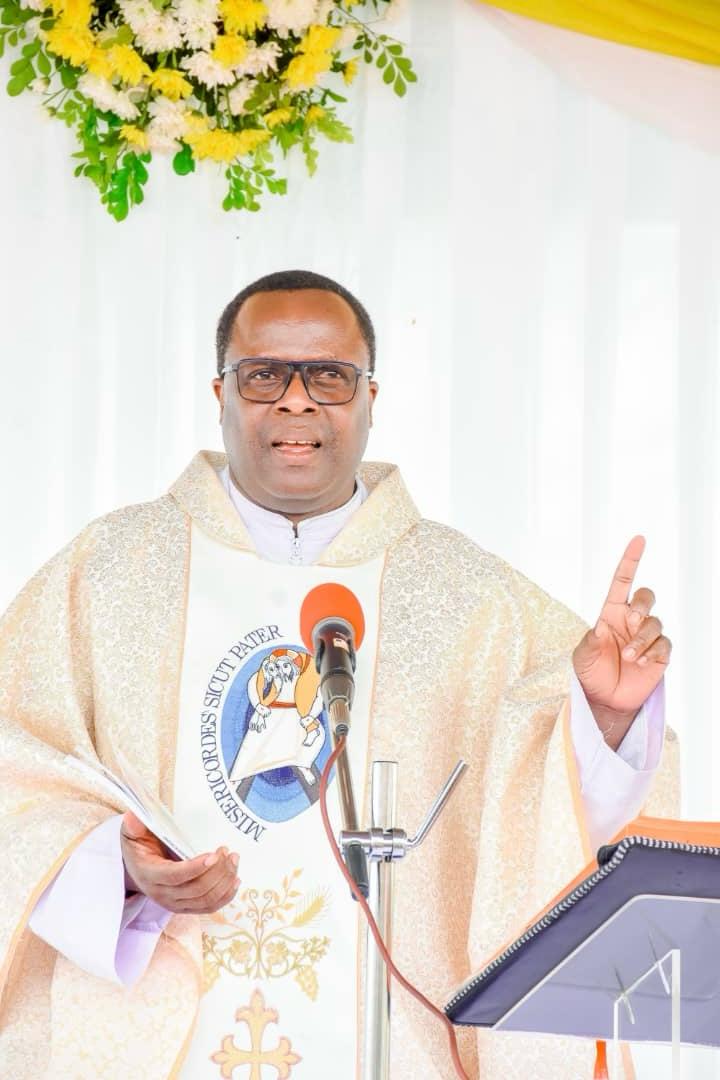
Fr. Alister Makubi from Tanzania Episcopal Conference (TEC)
Sr. Jecinter Antoinette Okoth, FSSA
As Vatican prepares for 300 parish priests from across the globe for synodal discernment, prayer and for the priests to have an opportunity “to experience the dynamism of synodal work at a universal level,” the identified participants from the Association of Member Episcopal Conferences in Eastern Africa (AMECEA) have attested that the voices of parish priests cannot be ignored for the success of the synod on synodality.
“When speaking about communion, participation and mission, you cannot forget the role of priests and deacons as they are the key persons engaged in day-to-day pastoral activities. They live with the people and they are the close collaborators of Bishops,” Fr. Alister Makubi from Tanzania Episcopal Conference (TEC) in the Archdiocese of Dar es Salaam, shared in an Interview with AMECEA Online stressing, “their mission in the synodal church is indispensable.”
The current parish priest of St. Peter’s Parish Oysterbay, who has served the Church for over a decade in various capacities, appreciates that delegates for the October 2023, Synodal Assembly realized the gap that the upcoming meeting is to fill.
“It is a good moment to share with others what we have and testify how we in Africa have lived this synodal experience since its launch,” the priest who is in the diocesan team for the synod and doubles as the Pastoral coordinator for the Archdiocese shared on Wednesday, April 17, adding that, “The Church in Africa is a family of God which is togetherness. This is the heart of the synodal church and we are ready to learn from others what we lack in our pastoral programs.”
The upcoming Vatican meeting is expected to take place from Sunday, April 28, to Thursday, May 2, at the Fraterna Domus in Sacrofano, near Rome.
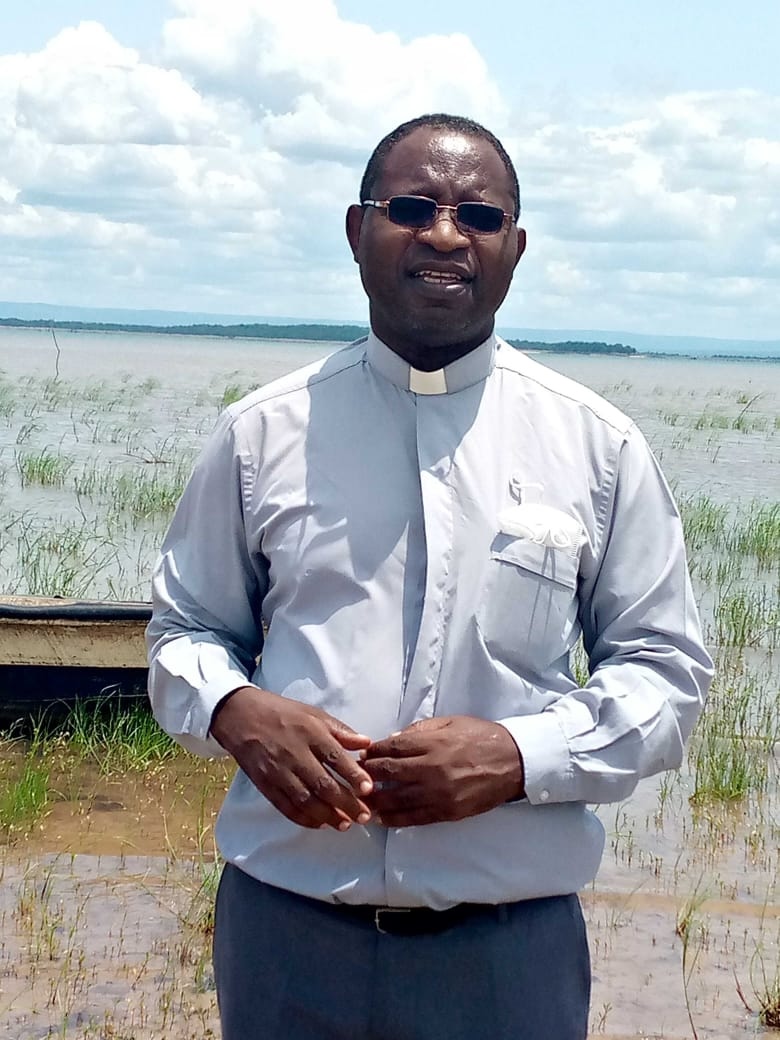
The Parish priest identified from the Zambia Conference of Catholic Bishops (ZCCB) Fr. Cletus Mwiila from Monze Diocese underscored that the anticipated meeting for parish priests seems to be one of the fruits of this unique synod.
“I see this meeting for the Parish Priests convened in the eternal City as one of the fruits of the Synod on Synodality,” the Parish priest of St. Mary’s Parish in Choma and the Synod Contact person for Monze Diocese shared his sentiments and narrated, “In the missionary journey of the Church, no voice must be left behind. Parish Priests are rooted in the communities and hear so much as people talk or discuss at the grassroots.”
In his synodal ministry as a contact person, Fr. Mwiila has been coordinating the processes of the synodal journey, popularizing the Synodal process in the local Church for the benefit of the Universal Church in its diversity, and facilitating workshops on the synod.
According to the Zambian cleric, the pastoral concern addressed to parish priests and Deacons should act as an eye-opener that “God is inviting us to be engaged in the new encounter with ourselves, with society and with God.”
He continued, “We should stop speaking tired language about God and begin to share our experience of God. In the light of the synod on Synodality, people now yearn for the language of experience and not the language of authority.”
Fr. Mwiila feels that the Synodal process since its inauguration has enriched his creative pastoral intelligence and the ability to discern and to listen to the Spirit what God might be saying to the Church in the changing times, as he “believes in the power of diversity at every stage of one’s faith life and the universal Church.”
He encourages servant leadership in the Church saying, “We need to deal with the issue of authority in the Church and become a community Church that celebrates servant leadership. The dioceses and parishes must become places of life rather than corridors of power and positions.”
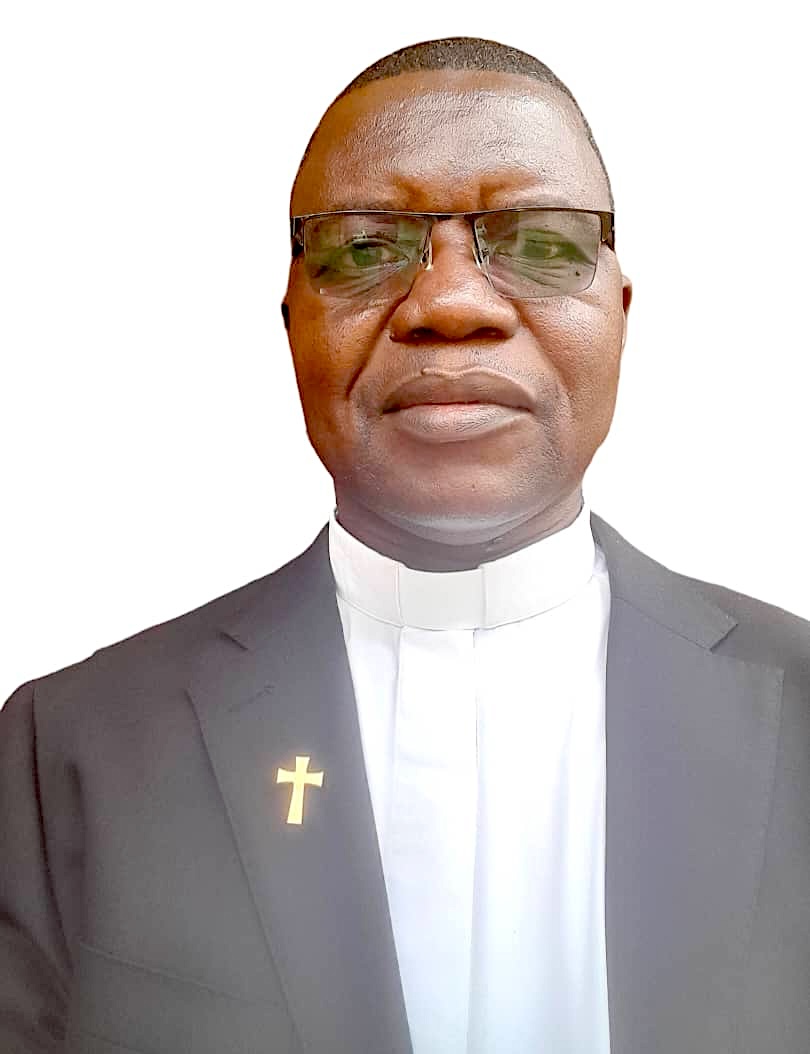
On his side, the representative from Sudan and South Sudan Catholic Bishops Conference (SSCBC) Fr. John Gbemboyo from Tombura Yambio Catholic Diocese echoes the same sentiments on the need for parish priests’ full involvement in the synodal journey.
He said, “We are grateful for this invitation because parish priests are part and parcel of this process and through them, the Spirit of synod on synodality can find its roots right from the grassroots.”
Fr. Gbemboyo who is the Synod contact person at the national level, expounded that parish priests are the direct people on the ground, and their voices are very significant during the synod process to help Christians understand and embrace the synod on synodality.
Ahead of the Rome meeting, the South Sudanese cleric proposes the need for strengthening family apostolate for the fruitful realization of the Synod on synodality saying, “Parish priests work together with the local community and with families. In this case, families should be the roots from where the spirit of synod on synodality begins, and the parish priests can instill this spirit of walking together.”
In reference to the Scriptures, Fr. Gbemboyo highlighted that Christ’s incarnation took place in a family of Joseph, and Mary who walked together. This is the unity expected in the Church where all are called to embrace the spirit of synodality and walk together.
Additionally, the cleric narrated, “Welcoming Jesus in our midst can help us to always live the spirit of prayer, respect, and unity.”
